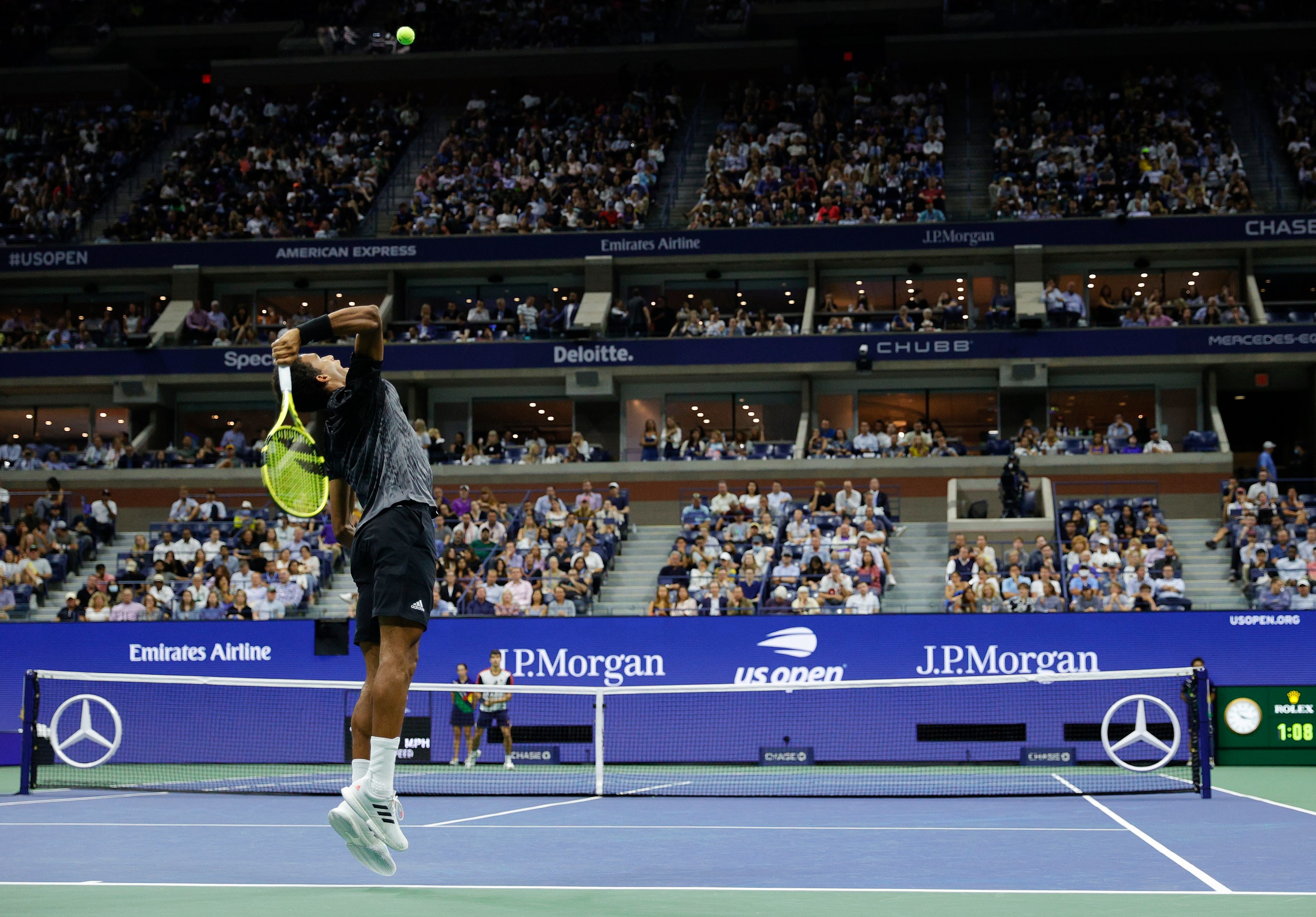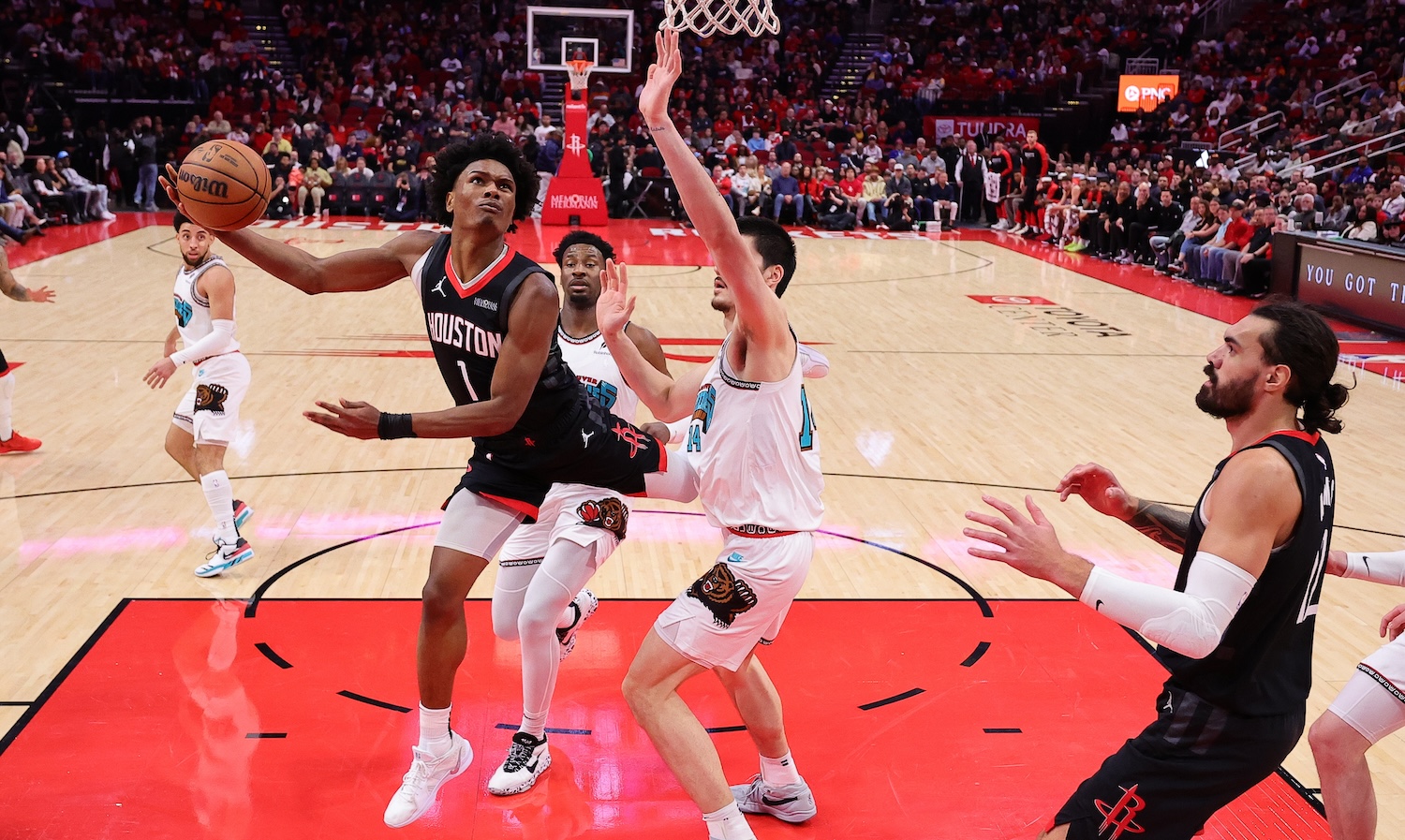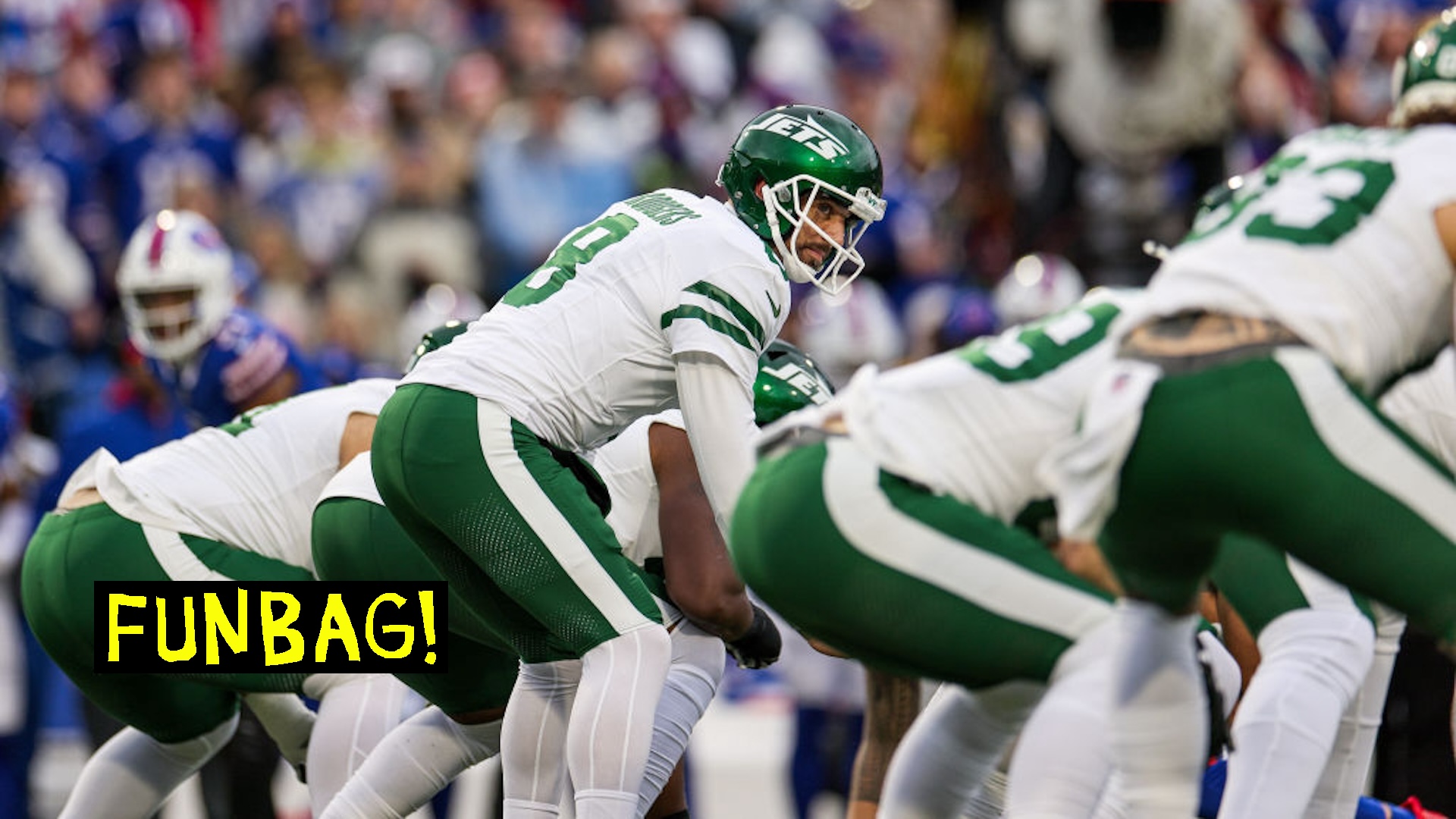A couple of nights ago, a few of us went out to drinks after dinner. We chose the bar specifically because the U.S. Open was playing. I like tennis, but I do not understand it. I know how it is scored, and I know the rules because announcers are always talking about the rules. But the actual mechanics of the game—the way it is played, the skill involved in placing that bouncy ball exactly where you want it to be—is lost on me. My poor colleague Giri Nathan, who knows so much about tennis, was seated next to me at the bar and in 10 minutes of listening to Giri, I learned more about the game of tennis than I did over the course of the eight U.S. Open matches I watched.
That's because Giri was telling me about the nuts and bolts of the game instead of the broad sweeping generalizations announcers usually stick to. I asked a simple, fairly stupid, question: Why does the serve toss wind up directly above the server's head instead of in front of it? Giri pulled in front of him on the table a glass mug, and a takeout container, which he propped on its side to explain that the reason the ball needs to be above their head has to do with the mechanics of the serve, and (more importantly) with angles. Not only does tossing the ball over their head allow tennis players to serve the ball with their dominant arm fully extended, it allows them to create an angle over the net that achieves maximum power, while keeping the ball in bounds. Giri also explained to me why players are always picking up four tennis balls and choosing only one to keep (the balls get fluffier the more you hit them, which makes them more difficult to hit hard).
Rarely are these basic pieces of knowledge that enrich the viewing experience offered by announcers. There are plenty of rule analyses and personal backstories and over-inflations of rivalries and past meetings. But there's very little substance to the commentary that actually improves viewer's understandings of the sports they love to watch but do not play.
Since, as established, I know very little about tennis, let's pivot to football. Here is a clip of Tom Brady that went viral late last week talking about how offensive mistakes are resulting in defensive penalties:
Tom Brady hits the bull’s eye yet again. pic.twitter.com/X2AUPBpTc9
— Tyler Dunne (@TyDunne) September 3, 2021
This is the insight that articulates something I had felt, but not noticed. Brady explains succinctly and easily that it is happening because of the way penalties are called, and it's happening because players are getting sloppy because they expect those penalties to be called. Without those insights, we only have the feeling of diminished play without any of the understanding of why the play level has decreased. This is the kind of thing that we should be hearing more often from commentators in the booth.
This is not to say that only athletes can be commentators, or even that to fully understand a sport you need to play it. Commentators could, quite simply, learn from the players using the access they are granted. They are constantly saying they talked to a player before the game only to reveal the most banal quote in the world—"I tell you what Mike, we talked to Aaron Rodgers yesterday, and he told us that this is a must-win game!"
Ask baseball players not only about the gunk rules, but about how the pitches feel coming out of their hands. Ask football players what trends they are seeing in zone coverage. Ask the tennis players what the most impressive thing their opponent did in the match was. I assume commentators aren't telling us these details because they think we will be bored by them, but it is the small choices that makes anyone great at what they do. The nuts and bolts are what's interesting. Give me inside baseball, inside football, inside tennis, inside basketball, inside everything. Open up the work of the game and show us the guts. That's the fun. That's the shit I want.





